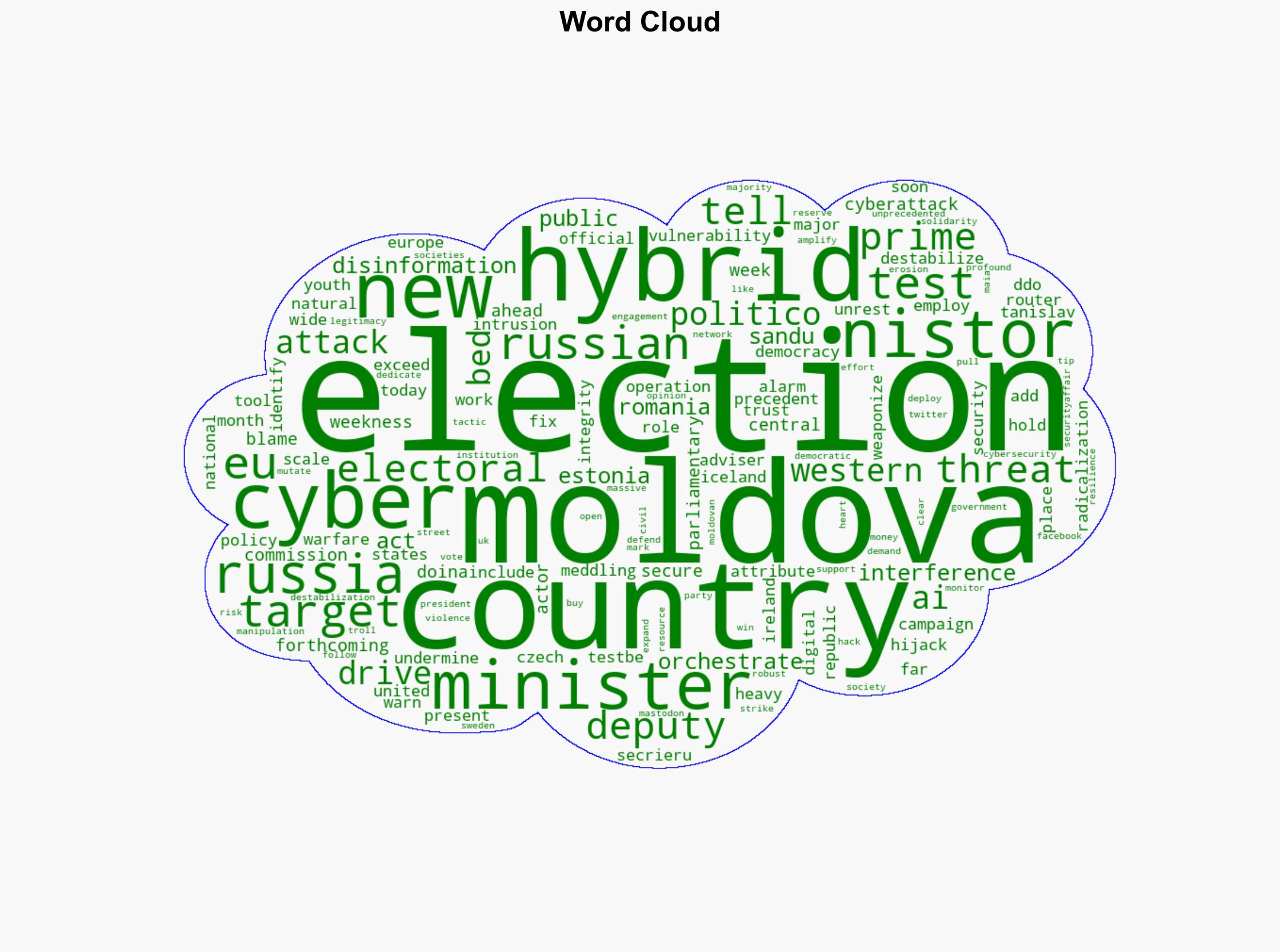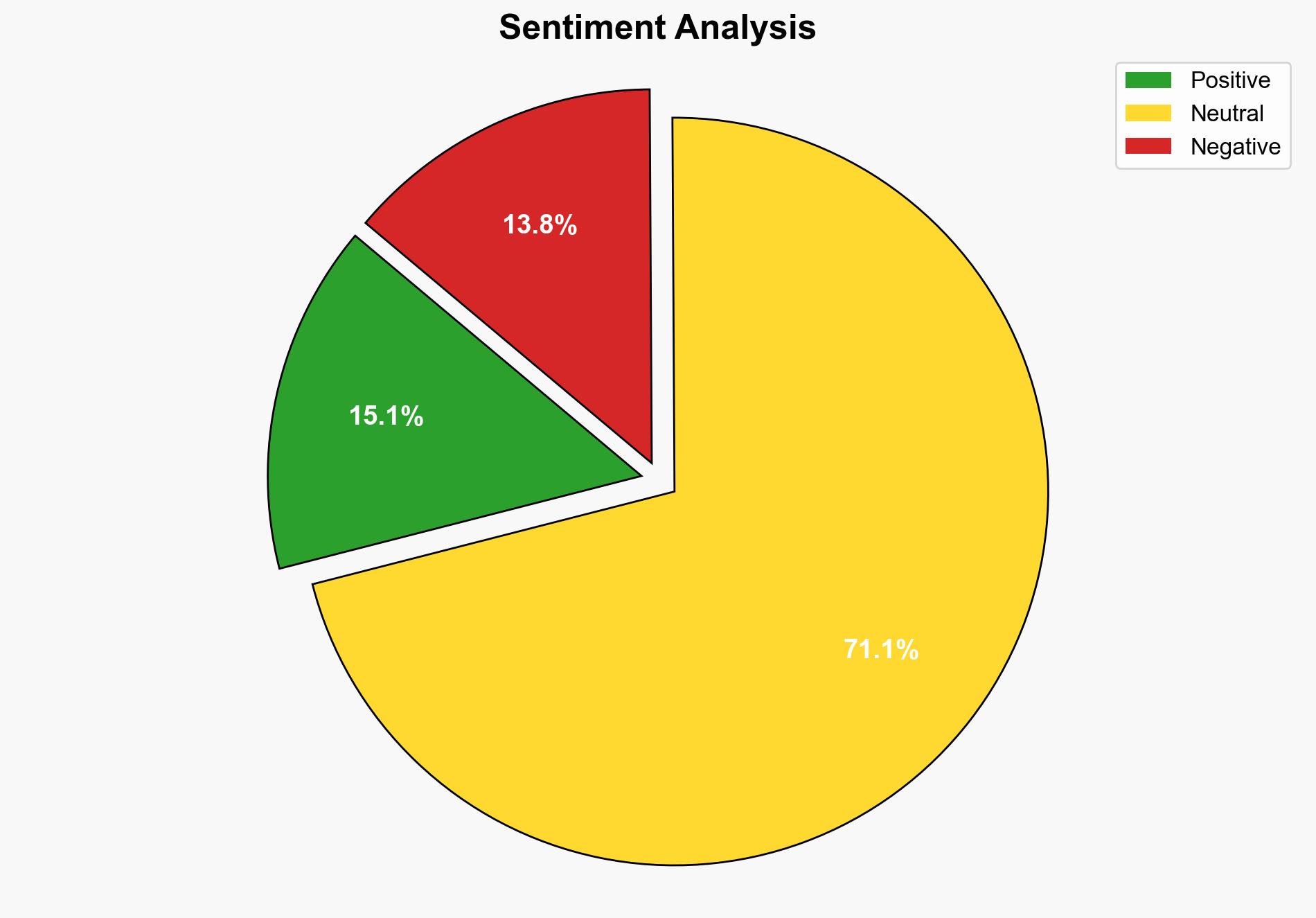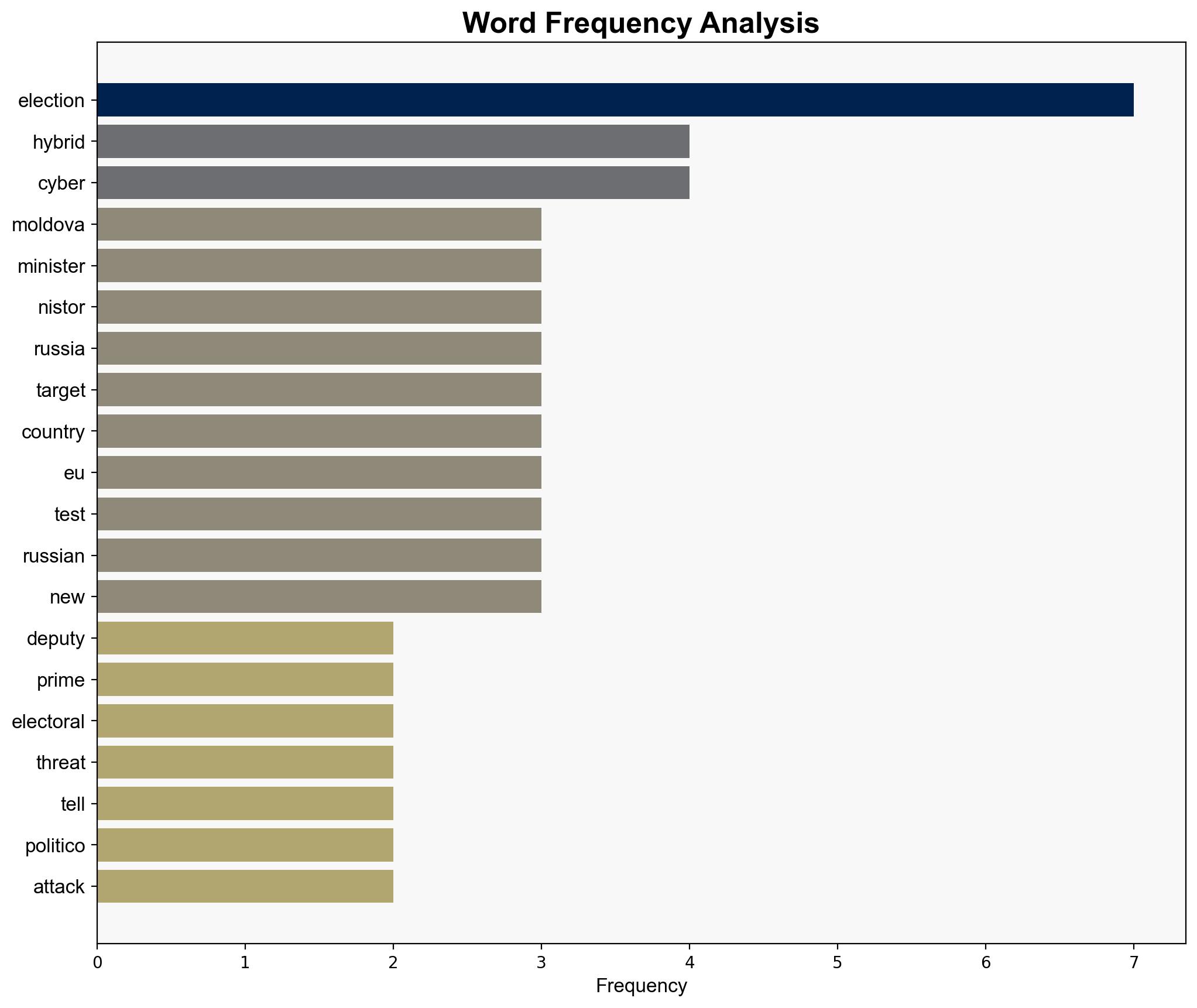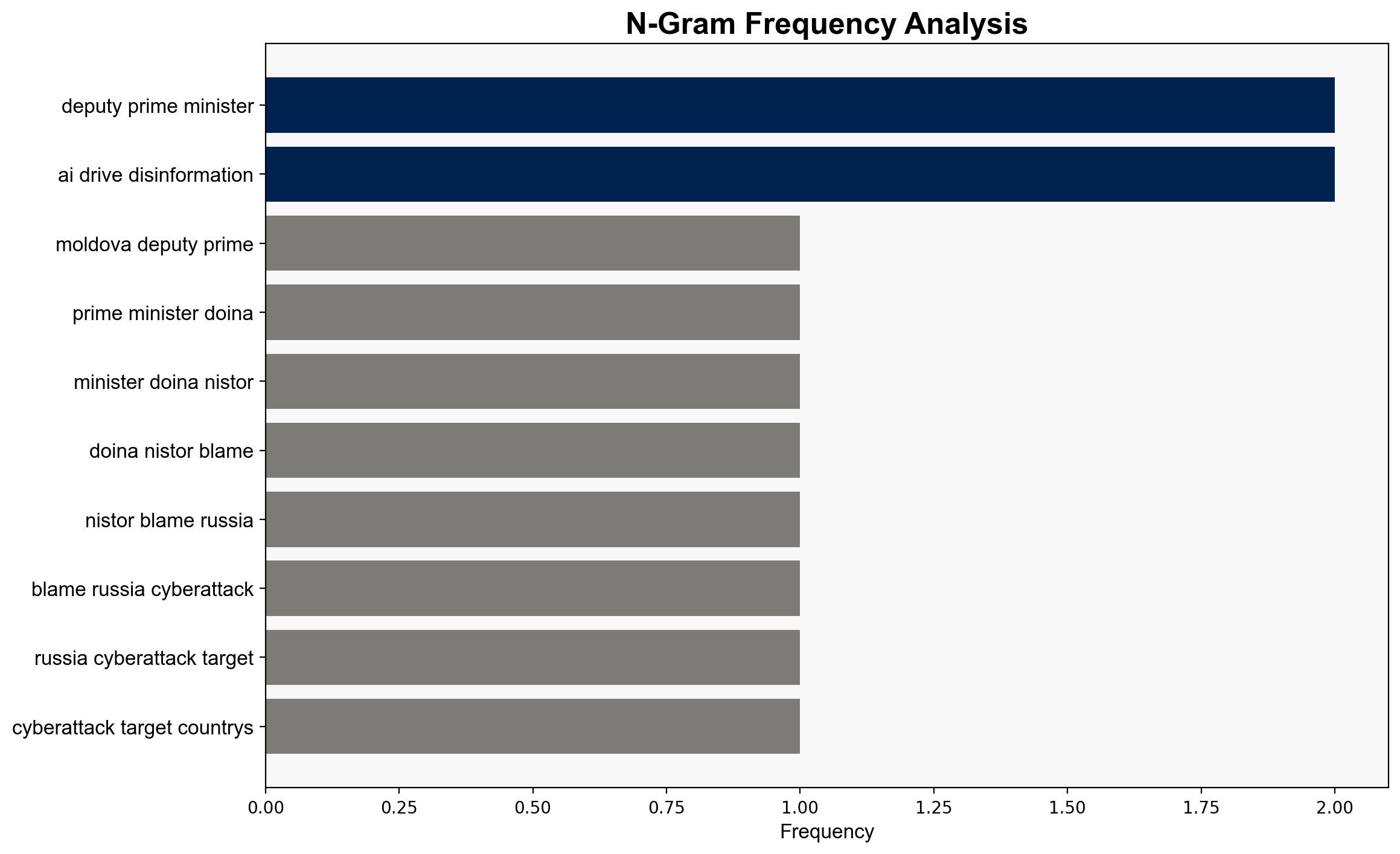Despite Russian influence Moldova votes Pro-EU highlighting future election risks – Securityaffairs.com
Published on: 2025-09-29
Intelligence Report: Despite Russian influence Moldova votes Pro-EU highlighting future election risks – Securityaffairs.com
1. BLUF (Bottom Line Up Front)
Moldova’s recent pro-EU election outcome, despite significant Russian interference, underscores the resilience of its democratic processes but highlights vulnerabilities that could be exploited in future elections. The most supported hypothesis is that Russian hybrid warfare tactics are being tested in Moldova as a precursor to similar operations in other Western democracies. Confidence level: Moderate. Recommended action: Strengthen Moldova’s cybersecurity infrastructure and enhance regional cooperation to counter hybrid threats.
2. Competing Hypotheses
1. **Hypothesis A**: Russia’s interference in Moldova’s elections is a strategic test bed for future operations in Western democracies. This hypothesis is supported by the scale and sophistication of the cyberattacks and disinformation campaigns, as well as statements from Moldovan officials and security experts.
2. **Hypothesis B**: The interference is primarily aimed at destabilizing Moldova specifically, with no broader strategic intent. This could be supported by the historical context of Russian influence in Moldova and the immediate geopolitical interests in maintaining influence over the country.
Using ACH 2.0, Hypothesis A is better supported due to the alignment of evidence with broader patterns of Russian hybrid warfare tactics observed globally.
3. Key Assumptions and Red Flags
– **Assumptions**: It is assumed that Russia has both the capability and intent to conduct such operations. Another assumption is that Moldova’s pro-EU stance is a significant enough threat to Russian interests to warrant such interference.
– **Red Flags**: The lack of concrete evidence directly linking Russian state actors to the cyberattacks could indicate either a sophisticated cover-up or misattribution. Additionally, the reliance on statements from Moldovan officials could introduce bias.
4. Implications and Strategic Risks
The implications of successful Russian interference in Moldova include the potential for similar tactics to be deployed in upcoming elections in other European countries and the United States. This could lead to destabilization and erosion of public trust in democratic institutions. The risk of escalation into more overt forms of interference or retaliation by affected countries is also present.
5. Recommendations and Outlook
- Enhance Moldova’s cybersecurity defenses through international cooperation and technology transfer.
- Increase monitoring and counter-disinformation efforts in upcoming elections in Europe and the US.
- Scenario-based projections:
- Best Case: Strengthened defenses deter future interference, preserving electoral integrity.
- Worst Case: Escalation of hybrid warfare tactics leads to significant destabilization in multiple countries.
- Most Likely: Continued attempts at interference with varying degrees of success, necessitating ongoing vigilance and adaptation.
6. Key Individuals and Entities
– Doina Nistor
– Maia Sandu
– Stanislav Secrieru
7. Thematic Tags
national security threats, cybersecurity, counter-terrorism, regional focus




